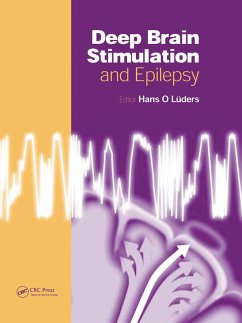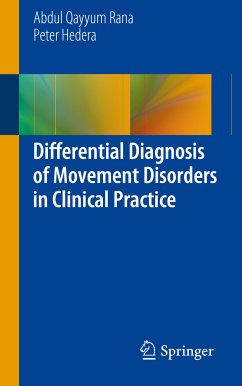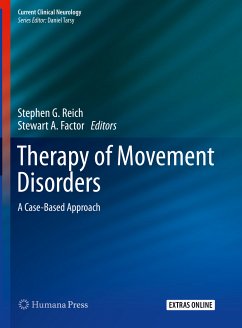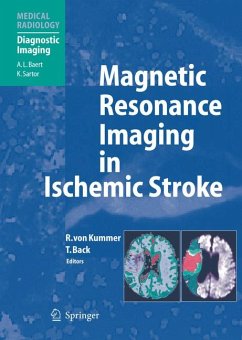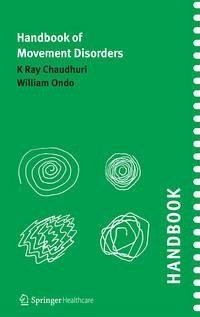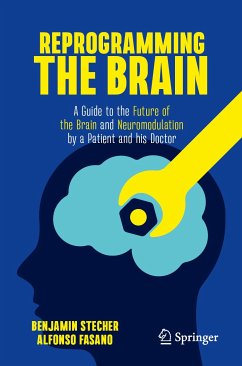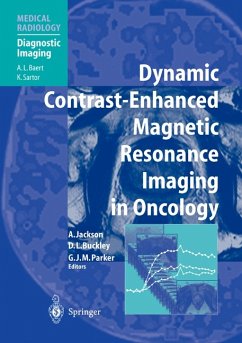
Magnetic Resonance Imaging in Deep Brain Stimulation (eBook, PDF)
Versandkostenfrei!
Sofort per Download lieferbar
80,95 €
inkl. MwSt.
Weitere Ausgaben:

PAYBACK Punkte
40 °P sammeln!
This book describes the roles magnetic resonance imaging (MRI) can play in deep brain stimulation (DBS). DBS therapeutically modulates aberrant neural circuits implicated in a broad range of neurological disorders. Following surgical insertion, an electrode placed into the desired brain target generates constant electricity, analogous to a cardiac pacemaker. Most commonly employed in movement disorders such as Parkinson's disease, dystonia, and tremor, DBS is also being investigated for use in psychiatric and cognitive disorders, including depression and Alzheimer's disease. It is estimated th...
This book describes the roles magnetic resonance imaging (MRI) can play in deep brain stimulation (DBS). DBS therapeutically modulates aberrant neural circuits implicated in a broad range of neurological disorders. Following surgical insertion, an electrode placed into the desired brain target generates constant electricity, analogous to a cardiac pacemaker. Most commonly employed in movement disorders such as Parkinson's disease, dystonia, and tremor, DBS is also being investigated for use in psychiatric and cognitive disorders, including depression and Alzheimer's disease. It is estimated that more than 230,000 patients have undergone DBS surgery worldwide. Imaging techniques, specifically MRI, have played key roles in the preoperative and postoperative aspects of DBS.
This book focuses on the established as well as the innovative roles of MRI in DBS. MRI and DBS are first introduced from an historical perspective and a review of the clinical aspects of DBS is performed. Then, the preoperative and postoperative applications of MRI in DBS are covered. The crucial aspect of MRI safety in these patients is also discussed. Finally, possible upcoming MRI applications for patients with DBS are discussed in a future directions chapter. Chapters are written by experts from the University of Toronto, a world leader in the field of DBS, alongside international co-authors to ensure a thorough review of the topics.
This is an ideal guide for both clinicians (neurosurgeons, neurologists, psychiatrists, and neuroradiologists) and researchers as well as trainees interested in neuroimaging for DBS.
This book focuses on the established as well as the innovative roles of MRI in DBS. MRI and DBS are first introduced from an historical perspective and a review of the clinical aspects of DBS is performed. Then, the preoperative and postoperative applications of MRI in DBS are covered. The crucial aspect of MRI safety in these patients is also discussed. Finally, possible upcoming MRI applications for patients with DBS are discussed in a future directions chapter. Chapters are written by experts from the University of Toronto, a world leader in the field of DBS, alongside international co-authors to ensure a thorough review of the topics.
This is an ideal guide for both clinicians (neurosurgeons, neurologists, psychiatrists, and neuroradiologists) and researchers as well as trainees interested in neuroimaging for DBS.
Dieser Download kann aus rechtlichen Gründen nur mit Rechnungsadresse in A, B, BG, CY, CZ, D, DK, EW, E, FIN, F, GR, HR, H, IRL, I, LT, L, LR, M, NL, PL, P, R, S, SLO, SK ausgeliefert werden.



